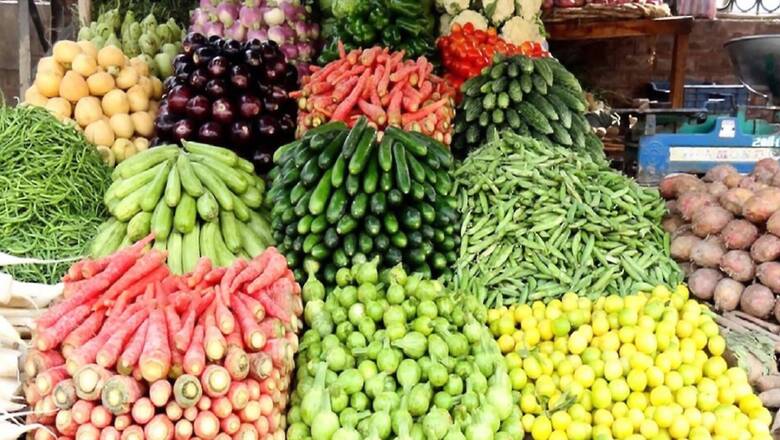
views
The Consumer Price Index (CPI)-based inflation, which stood at 7.01 per cent in June, is expected to be at 6.8 per cent during the current financial year, and the food inflation might come in at 7 per cent for 2022-23, according to a report by analytics firm Crisil. The RBI has a target to keep it under 2-6 per cent.
This is a notch higher than the RBI’s projection of 6.7 per cent CPI inflation during the current financial year. “On the assumption of a normal monsoon in 2022 and average crude oil price (Indian basket) of $105 per barrel, inflation is now projected at 6.7 per cent in 2022-23, with Q1 at 7.5 per cent; Q2 at 7.4 per cent; Q3 at 6.2 per cent; and Q4 at 5.8 per cent, with risks evenly balanced,” the RBI had said in its policy statement in June.
Crisil in its report said, “Our forecast of CPI inflation at 6.8 per cent is premised on food inflation at 7 per cent, which is double last fiscal’s. While we assume a normal monsoon for this forecast (based on the India Meteorological Department’s predictions) which can cap the upside to inflation this fiscal, the intensity and distribution will need monitoring.”
It added that the recent inflation data shows some softening in food prices but most of that was on account of some commodities benefitting from easing international prices, government interventions, and receding heatwave effects. “CRISIL believes that food prices could continue to stay firm this fiscal, keeping overall inflation elevated, as factors driving food prices high remain broadly unfavourable.”
CRISIL said the role of monsoon remains important but has somewhat diminished in the context of bringing down food inflation this year. To be sure, while truant rains can cause food prices to flare up further, healthy rains may not be able to materially bring overall food inflation down. The Food and Agriculture Organization expects global supplies to remain tight for wheat, dairy, and poultry products this year. This is partly attributable to disruptions around Russia-Ukraine trade and weather factors.
Wheat yields have been hit globally due to unusually higher temperatures. This, coupled with disruption in supplies originating from Russia-Ukraine region will maintain pressure on wheat prices this year. As Europe sizzles under a heatwave this year, some key crops are reportedly withering. At risk are crops such as rice, corn, animal fodder, in addition to vegetables output.
The past two months saw prices of some agri commodities such as cereals, edible oils and sugar ease from postwar highs, yet they remain higher than last year. The sequential easing was driven by seasonal improvement in production and weakening demand.
The impact of high global prices could continue to be felt in items where India is highly import-dependent, such as edible oils and fertilisers. Here, the impact might be blunted to some extent by government interventions of easing import duties and providing subsidies. On the flipside, export curbs would hinder farm profits, especially in an environment of surging costs of production, it said.
The retail inflation, which the central bank takes as the reference for its policy review, stands at 7.01 per cent. Though the CPI inflation in June at 7.01 per cent is slightly lower than 7.04 per cent in May, it is still above the RBI’s tolerance limit of 2-6 per cent.
Read all the Latest News and Breaking News here



















Comments
0 comment